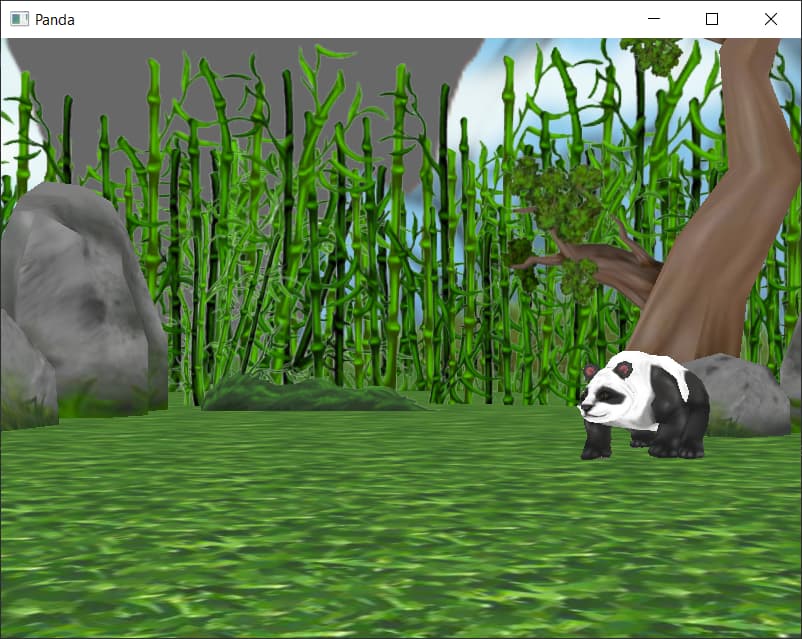I wrote some simple classes (WaitFor and CutScene) that allow you to wait for a event/input between sequences/parallels. To use create a CutScene object and use the add function to add any intervals you want. Anytime you want to pause/wait for input add a WaitFor object.
Code is under CC0 (public domain)
Just the classes
from direct.showbase.DirectObject import DirectObject
class WaitFor(DirectObject):
def __init__(self, event, timeout=None):
super().__init__()
self._is_playing = False
self.time = timeout
self.accepting = False
if type(event) not in [list, tuple]:
self.accept(event, self.fire)
else:
for ev in event:
self.accept(ev, self.fire)
if timeout:
self.add_task(self.timeout)
def start(self):
self._is_playing = True
self.accepting = True
def stop(self):
self._is_playing = False
self.accepting = False
async def timeout(self, task):
await task.pause(self.time)
self._is_playing = False
def fire(self):
if self.accepting:
self._is_playing = False
self.accepting = False
def is_playing(self):
return self._is_playing
class CutScene(DirectObject):
def __init__(self, play=False):
super().__init__()
self.times = None
self.is_playing = play
self.intervals = []
self.current = None
self.index = 0
self.wait = False
self.task = None
if play:
self.task = self.add_task(self.update)
def play(self, times=1, scene_index=0):
if not self.is_playing:
if not self.task:
self.add_task(self.update)
self.is_playing = True
self.times = times
self.current = self.intervals[scene_index]
self.current.start()
def loop(self):
self.play(-1)
def pause(self):
self.is_playing = False
if self.current:
self.current.pause()
def add(self, interval):
self.intervals.append(interval)
def update(self, task):
if self.is_playing:
if not self.current.is_playing():
if self.wait:
self.current.stop()
self.index += 1
if self.index == len(self.intervals):
if self.times <= 1:
self.times -= 1
if self.times == 0:
return task.done
else:
self.index = 0
self.current = self.intervals[self.index]
if type(self.current) is not WaitFor:
self.wait = False
else:
self.wait = True
self.current.start()
return task.cont
def clean_up(self):
self.remove_all_tasks()
self.ignore_all()
for i in self.intervals:
if type(i) is WaitFor:
i.clean_up()
else:
i.finish()
self.intervals = None
If you run the code you should see the panda in place until you press the q key.
Example
from direct.showbase.DirectObject import DirectObject
class WaitFor(DirectObject):
def __init__(self, event, timeout=None):
super().__init__()
self._is_playing = False
self.time = timeout
self.accepting = False
if type(event) not in [list, tuple]:
self.accept(event, self.fire)
else:
for ev in event:
self.accept(ev, self.fire)
if timeout:
self.add_task(self.timeout)
def start(self):
self._is_playing = True
self.accepting = True
def stop(self):
self._is_playing = False
self.accepting = False
async def timeout(self, task):
await task.pause(self.time)
self._is_playing = False
def fire(self):
if self.accepting:
self._is_playing = False
self.accepting = False
def is_playing(self):
return self._is_playing
def clean_up(self):
self.remove_all_tasks()
self.ignore_all()
class CutScene(DirectObject):
def __init__(self, play=False):
super().__init__()
self.times = None
self.is_playing = play
self.intervals = []
self.current = None
self.index = 0
self.wait = False
if play:
self.add_task(self.update)
def play(self, times=1, scene_index=0):
if not self.is_playing:
self.add_task(self.update)
self.is_playing = True
self.times = times
self.current = self.intervals[scene_index]
self.current.start()
def loop(self):
self.play(-1)
def pause(self):
self.is_playing = False
if self.current:
self.current.pause()
def add(self, interval):
self.intervals.append(interval)
def update(self, task):
if self.is_playing:
if not self.current.is_playing():
if self.wait:
self.current.stop()
self.index += 1
if self.index == len(self.intervals):
if self.times <= 1:
self.times -= 1
if self.times == 0:
return task.done
else:
self.index = 0
self.current = self.intervals[self.index]
if type(self.current) is not WaitFor:
self.wait = False
else:
self.wait = True
self.current.start()
return task.cont
def clean_up(self):
self.remove_all_tasks()
self.ignore_all()
for i in self.intervals:
if type(i) is WaitFor:
i.clean_up()
else:
i.finish()
self.intervals = None
if __name__ == '__main__':
from math import pi, sin, cos
from direct.showbase.ShowBase import ShowBase
from direct.task import Task
from direct.actor.Actor import Actor
from direct.interval.IntervalGlobal import Sequence
from panda3d.core import Point3
class MyApp(ShowBase):
def __init__(self):
ShowBase.__init__(self)
# Disable the camera trackball controls.
self.disableMouse()
# Load the environment model.
self.scene = self.loader.loadModel("models/environment")
# Reparent the model to render.
self.scene.reparentTo(self.render)
# Apply scale and position transforms on the model.
self.scene.setScale(0.25, 0.25, 0.25)
self.scene.setPos(-8, 42, 0)
# Add the spinCameraTask procedure to the task manager.
self.taskMgr.add(self.spinCameraTask, "SpinCameraTask")
# Load and transform the panda actor.
self.pandaActor = Actor("models/panda-model",
{"walk": "models/panda-walk4"})
self.pandaActor.setScale(0.005, 0.005, 0.005)
self.pandaActor.reparentTo(self.render)
# Loop its animation.
self.pandaActor.loop("walk")
# Create the four lerp intervals needed for the panda to
# walk back and forth.
self.pandaActor.set_pos(Point3(0, 10, 0))
posInterval1 = self.pandaActor.posInterval(13,
Point3(0, -10, 0),
startPos=Point3(0, 10, 0))
posInterval2 = self.pandaActor.posInterval(13,
Point3(0, 10, 0),
startPos=Point3(0, -10, 0))
hprInterval1 = self.pandaActor.hprInterval(3,
Point3(180, 0, 0),
startHpr=Point3(0, 0, 0))
hprInterval2 = self.pandaActor.hprInterval(3,
Point3(0, 0, 0),
startHpr=Point3(180, 0, 0))
# Create and play the sequence that coordinates the intervals.
self.pandaPace = Sequence(posInterval1, hprInterval1,
posInterval2, hprInterval2,
name="pandaPace")
self.cutscene = CutScene()
self.cutscene.add(WaitFor("q"))
self.cutscene.add(self.pandaPace)
self.cutscene.add(WaitFor("q"))
self.cutscene.loop()
# Define a procedure to move the camera.
def spinCameraTask(self, task):
angleDegrees = task.time * 6.0
angleRadians = angleDegrees * (pi / 180.0)
self.camera.setPos(20 * sin(angleRadians), -20 * cos(angleRadians), 3)
self.camera.setHpr(angleDegrees, 0, 0)
return Task.cont
app = MyApp()
app.run()
